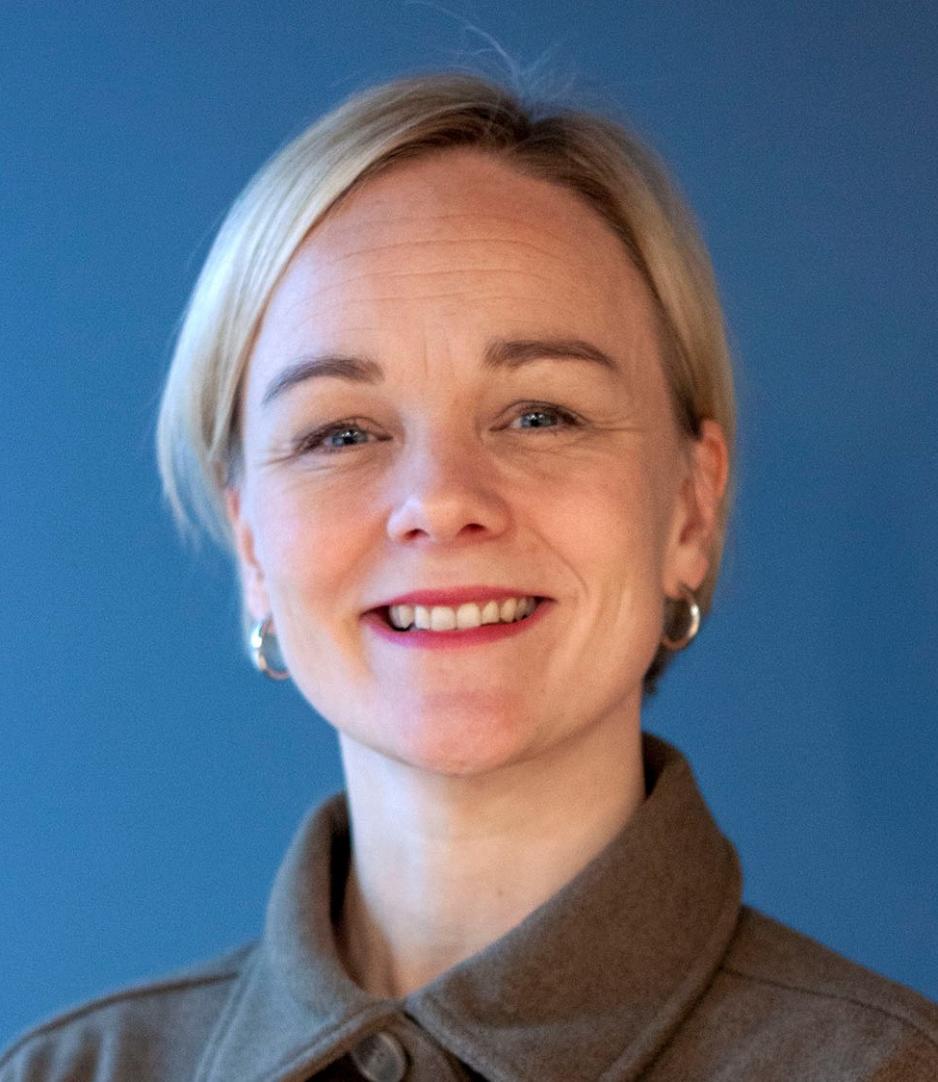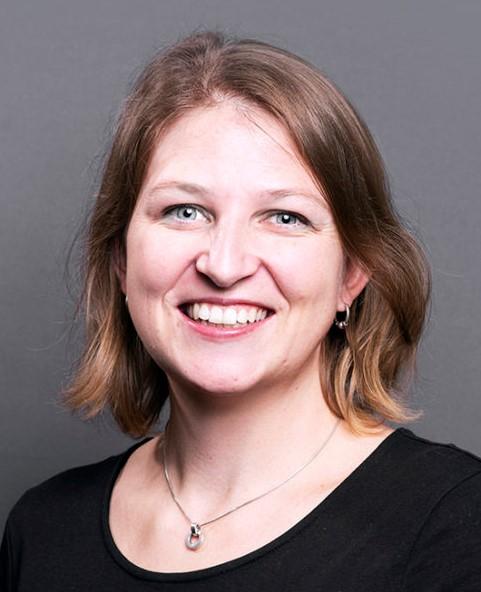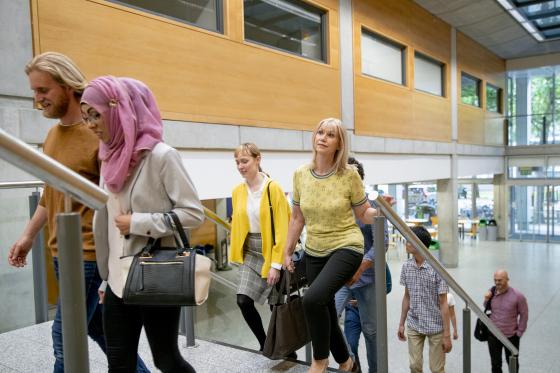“Class is an invisible difference in academia”
How common is it to be a first-generation academic in Norway? According to researchers in the field, we do not know, because there is so little research on social backgrounds in academia.
“First-generation student” has become an established term for describing the first person in the family to pursue higher education. But being the family’s first researcher can also be a barrier in academia.
Being a first-generation academic is a frequently discussed topic, as in an episode of the newspaper Morgenbladet’s research podcast and in the opinion piece Professor against all odds? (in Norwegian only). Here, Professor Sven-Erik Mamelund asks why there is so little focus on class in the debates on increasing diversity in the university and university college sector.

“Many academics could feel that they’re the only one who doesn’t have parents who are researchers,” says Silje Fekjær.
She is a professor at the Centre for the Study of Professions and acting Vice-Rector for Education at OsloMet.
“But that’s not necessarily the case,” she says and highlights the need for figures on social background in academia.
Where is the research on first-generation academics?
Ingvild Reymert, head of academic unit at Oslo Business School, tells us about a study on doctoral candidates that she contributed to in 2017. To ensure that the study also incorporated social class, candidates were asked about their parents’ level of education, precisely because there is so little research on doctoral candidates and where their careers take them next.

“But even though this was an extensive study, the numbers reported for this question were so small that we couldn’t make good use of the findings. We found that most candidates had parents with higher education. Only a few had parents with little education and parents with PhDs,” says Reymert.
“If, on the other hand, we had done case studies and interviews, we could have found out more about the candidates’ different motivations for taking a PhD,” says Reymert.
“Some universities have carried out basic research, and there are many researchers who are interested in this topic, but there is little commissioned research.” For example, the Ministry of Education and Research has hardly issued any calls in recent years that deal with social background in academia.
“We know a little about students, but not very much about doctoral candidates and their future research careers,” she says.
“This must be addressed, and the Ministry must issue calls for funding in this area,” Reymert believes.

Astrid Marie Jorde Sandsør, researcher at the Department of Special Needs Education at the University of Oslo (UiO), supports Reymert and Fekjær’s claim.
“Apart from perhaps gender, other barriers to academic careers have received little attention, such as parents’ education and income,” she says.
“By linking different registers together, this can be studied, but it would need someone to prioritise this field of research.”
Unanswered questions about class
When the Ministry of Education and Research established the sixth Committee for Gender Balance and Diversity in Research (the KIF Committee) for the period 2022–2025, social background was included in its mandate for the first time. As of this year, the KIF Committee will therefore help to increase knowledge about how gender and social and ethnic background affect researchers’ careers.
Ingvild Reymert thinks it’s positive that the KIF committee is now also tasked with focusing on social background, and she calls for research on factors that can make academia more inclusive.
“There are many unanswered questions about class, such as how students with different social class backgrounds experience life at university. We need to identify any differences so that the institutions are able to improve the situation and achieve the goal of equal rights to education.”
“For example, is there anything we, as universities and university colleges, can do about our teaching, the ways in which we encourage students to take a master’s degree or pursue a doctorate, or the social inclusion of students, to make working-class youth feel more welcome?”
But it’s equally important to study who becomes an academic and who does not, according to Reymert.
“Why do some people go into research while others don’t? Most researchers are middle class, and few have a working class background. Too little research has been conducted in Norway on the reasons for this.”
Reymert emphasises different characteristics and changes in the research sector:
“Academia is becoming more international, there are more temporary positions and researchers don’t have the same job security as before. At the same time, the job is considered less prestigious, and the pay isn’t the same as before either.”
Visible and invisible differences

Professor of Sociology Marianne Nordli Hansen at UiO believes there are some fairly obvious reasons why academia has been more concerned with gender and ethnic background than class background.
“Social class is less visible, while gender and ethnic background are more visible.”
“Is it taboo to be concerned with class in the research sector?”
“No, it just hasn’t been considered that relevant in Norway, and the topic has perhaps been rejected a little by the university and university college sector.”
As an example, Hansen mentions how, when Morgenbladet interviewed the Rector of UiO, Svein Stølen, he was not very concerned with class and did not think that much could be done about it either. But both the Rector of UiO and other leaders in the research sector should be interested in class, she believes. (See the comment from Svein Stølen at the bottom of the article.)
“Although not everyone is as concerned about class, more attention is being paid to social background now than before. Twenty years ago, a lot of people thought class wasn't relevant, but it’s different now.”
“But I think there’s little interest from the research sector in monitoring who ends up there and how they’re doing.”
Hansen feels that the elite universities in the US and England take a different approach to this and gives Berkeley University as an example.
“Everyone puts a lot of emphasis on demonstrating diversity and what you do. And by diversity, they don’t just mean gender and ethnicity – they also include economic and social backgrounds.”
“In Norway, on the other hand, the universities don’t seem to have any interest in social background.”
“The research sector should get an overview of the student body”
We have previously written about class and higher education, including two myths that researchers point out: One myth is that social class doesn’t matter anymore, and the other is that everyone takes higher education. As seen in the article “Not a goal that everyone takes higher education”, both myths are wrong.
Marianne Nordli Hansen believes the research sector should start with the students.
“When it comes to recruitment, the sector should look at the funding system and how it works. General funding schemes are common in Norway, but these are not necessarily available to the people who need the money.
“Universities and university colleges could start implementing measures for students whose parents don’t have much money,” she says.
“The sector should get an overview of the student body: Who are they and how are they doing?”
It’s just a matter of compiling figures that already exist, according to Hansen.
“You don’t have to ask them anything, but you can do studies based on publicly available data sources.”
Meritocracy and class
Håvard Helland also conducts research on class, but not specifically in the research sector. He cites England as an example of a country where social class is more obvious than in Norway.

“In Norway, we seem to believe that class doesn’t exist,” says Helland, who is a professor at the Centre for the Study of Professions at OsloMet.
He nevertheless believes that although the American and British universities Hansen refers to are more aware of this issue, recruitment is not necessarily more equitable in, for example, England than in Norway.
“Why should we be concerned about social background in the research sector?”
“Insofar as it’s a privileged group, there's a reason to look at it. Scarce goods should be more equally distributed,” says Helland.
Helland finds it important that scarce goods – such as research positions – are distributed fairly, and believes that academia addresses this by hiring according to merit.
“But meritocracy can also be avoided. For example, applications are often screened before being forwarded to an expert committee, and sometimes the criteria are unclear. Biases could also arise when the expert committee is appointed. Emphasis is placed on personal suitability, which opens for the possibility of things other than merit being emphasised,” says Helland.
Astrid Marie Jorde Sandsør, researcher at the Department of Special Needs Education at UiO, points out that clear criteria are a counterweight to differential treatment:
“The more neutral goals and criteria you set for who is considered a good candidate, the better. This prevents favouring of candidates with the right networks who know what to say, and ensures that you only measure the qualities that are supposed to be measured. The process becomes more open, and you can better avoid differential treatment on the basis of social class and gender,” she says.
Comment by Svein Stølen, Rector of UIO:
“In UiO’s Action Plan for diversity, equality and inclusion 2021–2024, we point out that UiO should be an open and inclusive university built on equality and respect, and with a safe working and learning environment where there is room for everyone regardless of gender, ethnicity, disability, gender identity, sexual orientation, socioeconomic background, age, religion, etc. Work is now under way on specifying targeted measures and further work.
Socio-economic background is of course important."
Translated by Allegro Language Services.
Class composition among doctoral candidates:
In an interview with the journal Forskerforum, Marianne Nordli Hansen refers to the class composition among doctoral candidates:
- The working class makes up over 30 per cent of the population.
- But the working class only makes up about 7 per cent of doctoral candidates.
- And about 78 per cent of PhD candidates come from the upper or upper-middle classes.
Several media have addressed class and social background in the research sector.
We will update the list of publications on Kifinfo with publications on social background. Keep an eye on this page and send us tips on relevant publications.
Class at universities and university colleges:
Some universities and university colleges in Norway mention “socio-economic background” and “social class” in their action plans.
The sections on the status and measures regarding equality and diversity normally concern gender and ethnic background, and not class.
In the US, Berkeley University includes socioeconomic status when describing diversity: “These differences include race, ethnicity, gender, age, religion, language, abilities/disabilities, sexual orientation, gender identity, political diversity, socioeconomic status, and geographic region, and more.”
The KIF committee and social background:
This year, the Ministry of Education and Research decided that social background should be included in the mandate of the National Committee on Gender Balance and Diversity in Research (KIF Committee). This sixth KIF committee will look at how gender and social and ethnic background affect critical transitions in a research career, from the path into research to senior-level and leadership positions.
See mandate for 2022–2025: Mandate for the Committee for Gender Balance and Diversity in Research (KIF)



